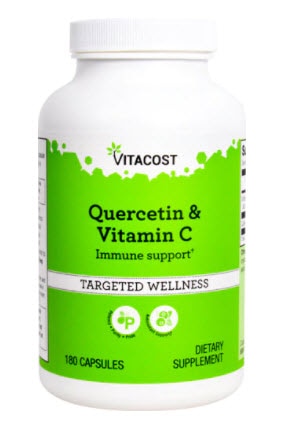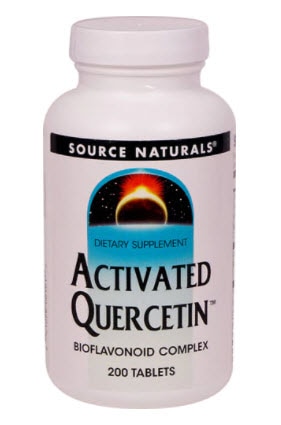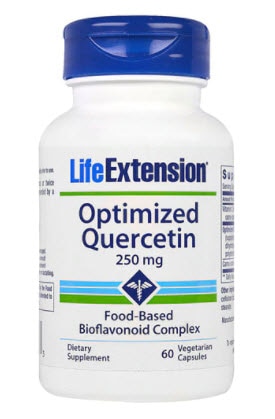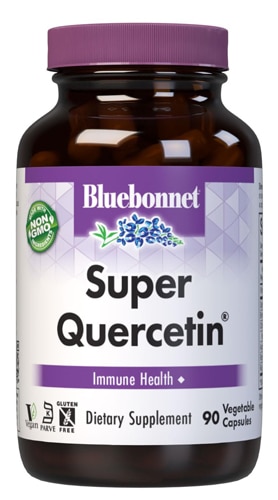An apple a day may keep the doctor away for a very specific reason. The fall fruit, in all of its wonderful varieties, contains a compound that provides tremendous benefits. Its name?
Quercetin. Technically a plant pigment (or polyphenol), the bioflavonoid encourages an array of health-boosting pluses. Read on to learn more about quercetin—and why you might want to bring more of it into your diet.
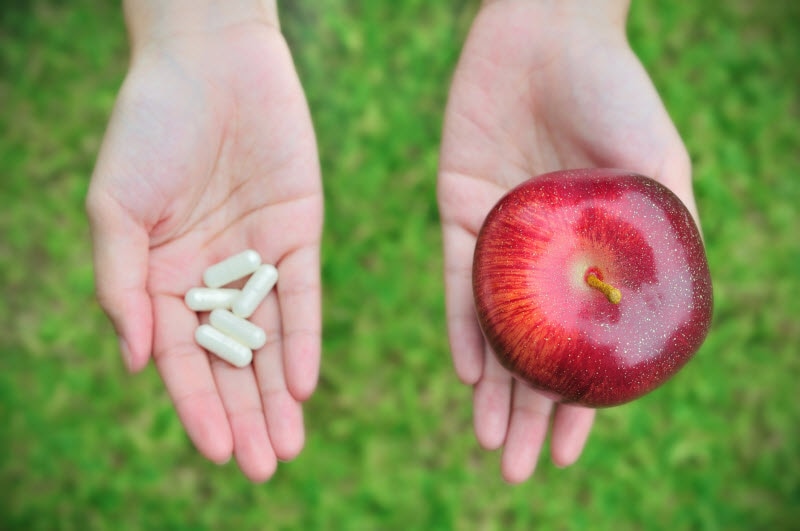
What does quercetin do?
Bioflavonoids may organically promote normal healthy sinus, respiratory and immune function. What’s more, they offer antioxidant activity to help fight free radical damage, as well as nutritive support to help maintain normal capillary permeability (read: optimal blood flow and capillary wall stability).
†
Quercetin may also inhibit the manufacture and release of histamine and other inflammatory mediators, just as it may help support
a healthy inflammatory response. In addition, quercetin provides cardiovascular support and may help support healthy cholesterol levels.
†
Given that your body cannot produce bioflavonoids on its own, it’s vital to receive a supply through diet and supplementation.
How much quercetin do I need?
Lucky us, as
quercetin is abundant in a number of fruits and vegetables, and most of us get between 5 and 40 milligrams of quercetin per day through food. If supplementing, the most common dose is 500 mg per day, up to twice a day.
What are the signs that I’m not getting enough?
Bioflavonoids operate as potent antioxidants, which, as mentioned, help combat free radical damage and the accelerated aging and risk of disease that arrives with it. While it’s difficult to discern whether you’re getting enough antioxidants, your health care provider can analyze if you’re under oxidative stress through a number of tests. These include assessing whether you have adequate reserves of antioxidants in general, and blood tests to determine if you have systemic
inflammation.
For the most part, however, you can simply tap into how your body feels. Do you have energy? Mental clarity? Sound digestion? If not, it may be wise to not only redo your diet but also consider supplementing.
What are the best quercetin foods?
A number of delicious foods boast excellent amounts of quercetin—and you may be eating plenty of them already. These include those aforementioned apples (particularly Gala apples and Red Delicious apples), watercress,
asparagus, buckwheat, onions, red leaf lettuce, kale and figs. Several berries are also rich in quercetin, including cranberries, blackberries, and blueberries. Herbs abound with quercetin, too, such as parsley, sage, stinging nettle and cilantro. And if
green tea is your go-to drink, good on you: it contains high amounts of the bioflavonoid.
Is it possible to have too much quercetin?
Absolutely. Very high doses of quercetin may damage the kidneys.
Are there any side effects of quercetin supplements?
Yes to this too. While quercetin is generally considered safe, side effects may include headaches and an upset stomach. Additionally, pregnant women, breastfeeding women and people with kidney disease should avoid using quercetin, as well as anyone who is taking antibiotics, blood thinners, corticosteroids, cyclosporine, digoxin, fluoroquinolones and medications changed by the liver.
Should I take a quercetin supplement?
People choose to take quercetin for a range of reasons but oftentimes it’s used to bolster immunity, manage allergies and improve athletic performance (do note, however, that studies on quercetin’s impact on these potential benefits is limited, and scientists agree that more research on humans is needed).
†
What’s more, your body has a difficult time absorbing quercetin properly, so taking a supplement makes sense if you’re keen on increasing your intake. If it sounds appealing to you, consult with your healthcare provider—and if you get the green light, be sure to choose a quality product that’s made with non-GMO ingredients.
One to try:
Bluebonnet Nutrition's Super Quercetin. In addition to being gluten-free, vegan, and kosher, this quercetin-rich formula contains a handful of health-enhancing nutrients, including skin-saving vitamin C, digestion-boosting bromelain and mineral-brimming rose hips.
Prefer to get your quercetin from food alone? Certain studies suggest that eating the bioflavonoid alongside heart-healthy fats can improve absorption—just in case you needed another reason to order that extra side of avocado.
†These statements have not been approved by the Food and Drug Administration. These products are not intended to diagnose, treat, cure or prevent disease.
Featured products:
